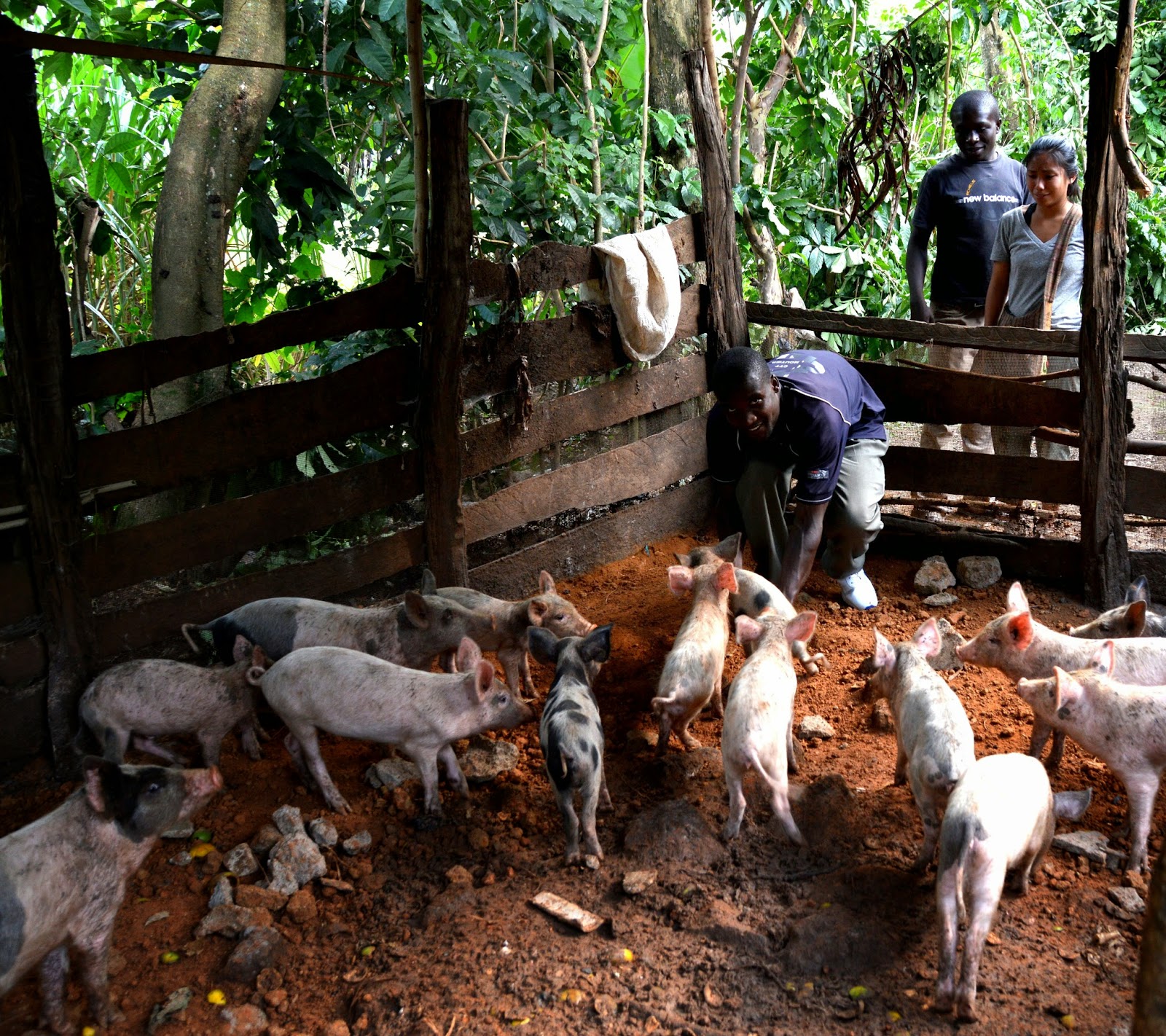As we’ve settled
into our new home and adjusted to the early morning wake-up call of goats and
cows grazing just outside our windows, I’ve learned just how much can be
accomplished in a day despite the “pole pole” pace of African Time. Our crash
course on WOPLAH’s wide-ranging work has only just begun, and yet we’ve already
gained numerous insights into the scope of and processes behind WOPLAH’s impact.
In the past two days alone, it has become clear that WOPLAH’s reach extends far
beyond those who have been directly affected by HIV/AIDS.
Yesterday we
joined Edwin at the Maternal Child Health Center to generate an outline for monitoring
and evaluation (M&E) questionnaires. In addition to the kitchen gardens,
goat, poultry and jiggers projects – of which I already had an understanding –
we discussed in depth WOPLAH’s village banking and community dialogue programs.
Even more interesting however, were Edwin’s instructions on how such questions
would be delivered. Prompts must be broad and inclusive of many questions so
that respondents may answer in a story-like manner. While Americans are
accustomed to numerous specific questions, Edwin warned that respondents would
become bored and uninterested if we were to list out our many inquiries. Furthermore,
when determining weaknesses within the program, it is better to ask generally
if there is anything else they would like to share. This ensures that
beneficiaries do not think they are listing problems they have experienced –
which they would shy away from out of respect – but rather allowing them to
illuminate details that convey such issues tacitly. We were all grateful for his
attention to these small details that were to us unexpected potential cultural
barriers.
After a long
midday walk, we took our reliable piki pikis to visit the Siowote (Not All)
Self Help Group. Formed in March and comprised primarily of men, the members
use WOPLAH’s village banking system to raise pigs for income generation. They
were extremely friendly, and very eager to make their way into our photo
albums. Only after returning to our compound did Edwin mention the group’s unique
background: all members had been male sex workers since childhood (and some
still are). Some of the men are HIV positive, and those who still engage in sex
work are provided with condoms and continued education regarding prevention. Over
time, as the pigs and other future microfinance projects return a stable
profit, we hope they will no longer feel dependent upon the sex industry.
Over the next few
weeks we will conduct interviews with the majority of WOPLAH’s beneficiaries in
order to gain insight into the intricacies of implementation, define the impact
these programs achieve, and determine opportunities for improvement. Witnessing
a group of 18 men debate their individual debts and collective assets, when
just months ago they were selling themselves on the streets, was incredibly
inspiring. And while not every group that WOPLAH collaborates with is
explicitly composed of those living with HIV/AIDS, the impact is just the same.
By empowering all members of a community together, WOPLAH is creating a healthy
integrated environment in which people living positively may flourish.
- Shannon (International Political Economy Major / Urban Studies Minor, Class of 2016)




No comments:
Post a Comment